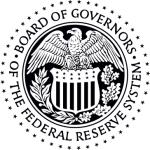 Since I wrote about Josh Barro earlier, I thought I would discuss his father Robert Barro now. Later tonight, I plan to write about his mother. (Note: I will not be writing about his mother.) Yesterday, Paul Krugman posted an article on his blog, Real Americans and Real Economics. This is a reference to a public fight that Krugman had with the elder Barro back in 2011, when he wrote an OpEd at The Wall Street Journal, Keynesian Economics vs Regular Economics. It’s a remarkable article. Let me go further: it is a remarkable title.
Since I wrote about Josh Barro earlier, I thought I would discuss his father Robert Barro now. Later tonight, I plan to write about his mother. (Note: I will not be writing about his mother.) Yesterday, Paul Krugman posted an article on his blog, Real Americans and Real Economics. This is a reference to a public fight that Krugman had with the elder Barro back in 2011, when he wrote an OpEd at The Wall Street Journal, Keynesian Economics vs Regular Economics. It’s a remarkable article. Let me go further: it is a remarkable title.
I’m not an economist, but those who are seem to think that Robert Barro is a very smart guy and a great economist. Krugman dealt with Barro’s claims at the time, Shocking Barro. But what I find amazing is that he’s completely disconnected from the real world. What he is arguing is that Keynesian economics has no theoretical foundation. I understand this, being an old environmental modeler myself. But I found out rather quickly that macro-scale models based on micro-scale phenomena are not necessarily better than a macro-scale model based simply on macro-scale observations. You would think that all economists would understand that having micro-foundations in a model does not necessary make it better, much less correct.
Of course, Barro throws out a lot of data and claims there is no support for demand side solutions to problems. In fact, the subtitle of his article is, “Food stamps and other transfers aren’t necessarily bad ideas, but there’s no evidence they spur growth.” But he is the Ricardian Equivalence guy. His idea is that government spending won’t stimulate the economy. The way this works in his theory is: (1) government spends by borrowing; (2) people see this and assume it means the government will have to increase their taxes later; (3) people spend less to save up for this future tax bill.
There are two problems with this as far as I can see. The first is: really?! You really think that people are that informed and rational? Well, I know Barro does. It’s ridiculous, but I’ll move on. The second problem is that the deficit spending would not be paid back all at once. So if the government spent $10 and planned to pay it back with increased taxes over the following ten years, then the completely knowledgeable and rational taxpayer would cut his spending by $1 that year, not $10. So there would be a $9 stimulative effect. This means that stimulus could be used exactly as we want it to be used: to smooth out the business cycle.
Within hours of Barro’s article appearing, David Glasner wrote a response, Barro on Keynesian Economics vs Regular Economics. He makes the point that Barro had argued that monetary policy can stimulate the economy, so why not government spending:
I think the problem is precisely that Barro is a clever fellow. He can come up with a justification for anything at all. The problem is that he is so ideologically rigid at this point that economics isn’t a tool of discovery; it is a slave of what he wants to believe. So the real micro-foundations of his work are his rigidly held political opinions. Given this, it is no wonder that conservatives think that climate scientists force their data analyses and models to predict global warming—that’s what their economists do.






In college, I double majored in History and Economics. They are both wonderful disciplines but they can very easily make you into what you would describe as a subgenius. One the one hand, Economics can teach you a whole lot of tools of analysis and History can give you a wealth of stories and biographies and quotes and antidotes. The down side to History and Economics is that they can make you into an apologist for American Exceptionalism and Market Exceptionalism, respectively. As you learn more, your vision gets narrower just as your ability to defend those views get more and more robust and adroit.
I am glad that I studied both disciplines in college but I sometimes could feel myself falling into that subgenius trap and I had to force myself to use my new found knowledge to increase the breadth of my analysis as well the depth.
I’ve read about research that suggests that having more knowledge makes one more rigid ideologically. But I’ve always wondered if ideology mightn’t also cause someone to have more knowledge. The study had to do with Israel-Palestine. It makes sense that people with more of a personal investment in the issue on both sides would also know more about. So I wonder about that.
It is clear that Barro is not a subgenius. Being brilliant can be its own trap. As far as I can tell, the modern understanding of Ricardian Equivalence is a big part of what he is known for. And in a sense, much of his writing is just about justifying that. Government stimulus cannot work and we know that be God told us. And God is Robert Barro.
But I fully admit, part of what I like about Keynesian economics is that I understand it. There is so much of economics that mystifies me. I’m still trying to figure out how money works. The only thing that makes me feel better is this hunch I have that no one really understands money. I think that’s part of the appeal of the gold standard–it is a simple concept that you can understand. Otherwise, money seems like just a shared delusion. And I think that’s about right. But just like God doesn’t answer the fundamental ontological question, gold doesn’t answer the money question. Other than if I need the metal for making something, I don’t see it as inherently valuable. So gold? Paper? Who cares?!
I’m rambling, but economics really makes my brain hurt.
Regarding how money works, gold too is a shared delusion — though the gold bugs hate hearing that and insist that gold is special because of its history and short supply. 19th Century economists were heavily into philosophy of value and utility, but by the 20th century economists left that to philosophers. Most economist now think of supply and demand (prices and quantities) rather than engage in any discussion of value and worth. I quite agree that money is not easily understood. At times, the exponents of Modern Monetary Theory (MMT) can make my head spin.
I always reference Monty Python regarding economics, “My brain hurts!” But I did mean to get at the relative uselessness of gold with my ontology comment. Actually, about a year ago, I wrote, Gold Is Not a Good Investment—At Least for 500 Years following off an article by Matthew O’Brien. Unless I’m building circuit boards, what good is gold?
That’s an excellent point about value and utility. Adam Smith was a moral philosopher, after all. What bugs me about economists like Barro is how divorced they are from that. The implication seems always to be that the practical aspects of their work don’t matter. At the same time, they push their theories as though they are The Truth and they have no ideological baggage. And that clearly isn’t true.